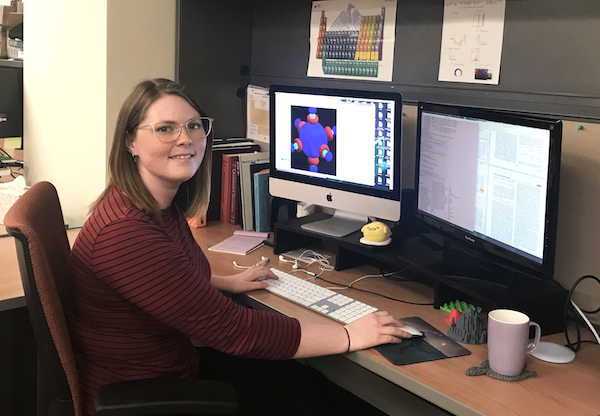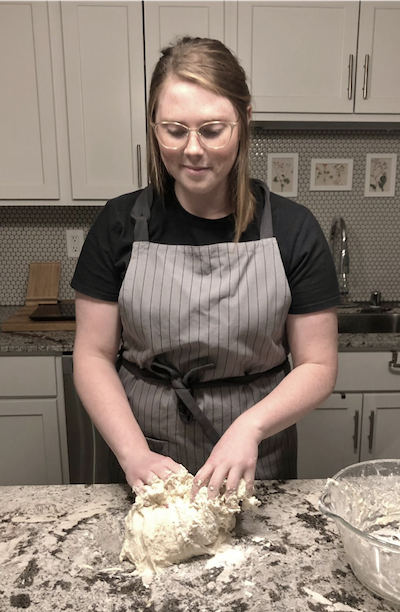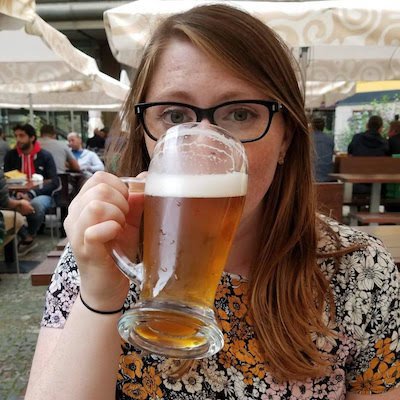Meet CTC: Meagan Oakley

October 23, 2019 -- Meagan Oakley is a postdoctoral researcher in the Gagliardi group. Meagan received her B.Sc. with Honours in Chemistry from the University of Prince Edward Island in Canada. She then obtained her Ph.D. in Computational Chemistry in April 2019 with Professor Mariusz Klobukowski at the University of Alberta.
Meagan’s current research involves the computational design of magnetic molecules for potential use as storage components in quantum computers. She uses a number of correlated wave function-based methods in her research. Included in these are LASSCF, developed within the Gagliardi group, and MC-PDFT, developed within the Gagliardi and Truhlar groups. These types of high-level computations require lots of computer processing time and resources from the Minnesota Supercomputing Institute.
In Meagan’s spare time, she enjoys doing at-home chemistry in the form of edible fermented products. She makes sourdough bread, brews beer, and is currently expanding her fermentation repertoire to include sauerkraut and kimchi.
Why did you choose the University of Minnesota, and what led you to join the Gagliardi group?
I chose the University of Minnesota for their outstanding theory department. I met Professor Gagliardi during my graduate studies at the University of Alberta. She was invited for a seminar and I had an opportunity to chat with her about her research and collaboration. After getting involved with her group, I decided that Professor Gagliardi would be the best mentor for me at this point in my career, and applied for a postdoctoral position in her group.

What do you enjoy most about your research?
The best part about computational chemistry is that it gives us the power to compute properties of molecules that have not yet been synthesized. These computations can guide experimentalists to efficiently narrow their scope of synthesis and help reduce chemical waste. I also really enjoy collaborating with people all around the world from different fields and backgrounds who may contribute unique perspectives on scientific problems.
What are you most proud of about your academic career so far, and what’s one thing you’d like to achieve in the future?
During my graduate studies, I was involved in many Department committees and founded an Inclusivity in Chemistry group. Additionally, I chaired a conference on Gender Inequality in Chemistry to expose early-career chemists to a diverse group of established chemists from different backgrounds. The seminars reported on inequality issues happening in each sector and how to navigate them.
In the future, I would like to encourage and mentor those who intend to create member resource groups at their own institutions.
What drives you to be a better scientist?
I would like my research to reach a wide audience. To do that, I need to continue pursuing interesting applications and testing better, high-level methods. I’m also motivated by the fact that my field historically lacks minority representation. I want to be a better scientist to increase female representation and help retain minorities in science at all academic levels.
What advice do you have for aspiring scientists?
Research will not go as you expect, but that is what makes it so interesting! One of the most important skills I learned during graduate school is how to redefine the word failure. We can always learn something from our science, whether it be “I missed a keyword, but now my script includes it” or “These results are not what I expected, and now I know why.” When your research does lead to interesting findings, make sure you take the time to celebrate and be proud of what you have accomplished.

How did you become interested in studying chemistry?
During the first day of high school chemistry, my teacher performed a demonstration where she turned “water” into “wine” and then into “milk” with a charming story that went along with it. I was immediately hooked. She regularly helped us apply the knowledge she taught us in the class with demonstrations or applications in the lab, which made chemistry really exciting.
What is your favorite part about living in the Twin Cities?
I really love the vibrant music scene in Minneapolis. There are amazing concerts happening almost every day of the week. All of the craft breweries are also a plus.
